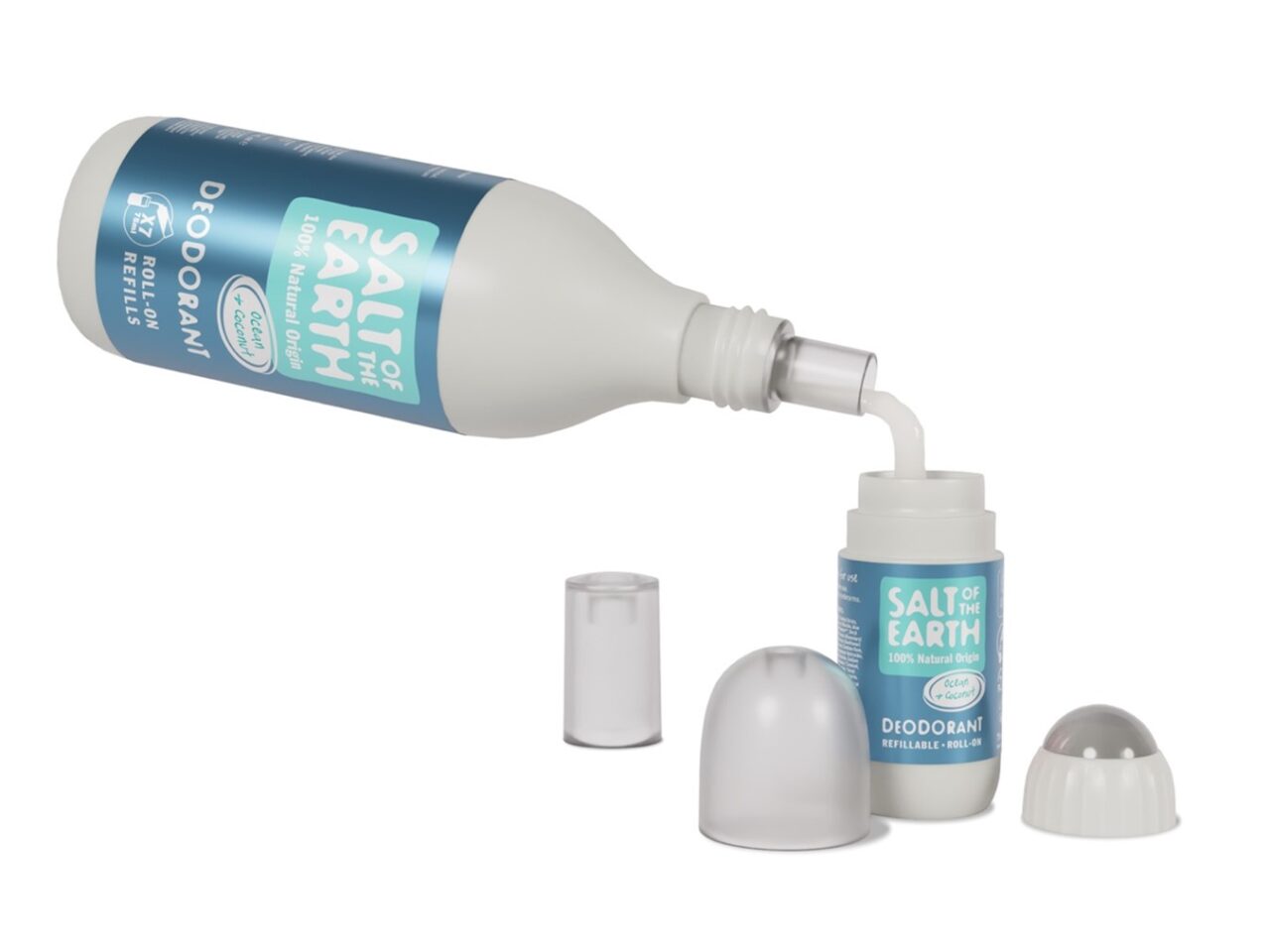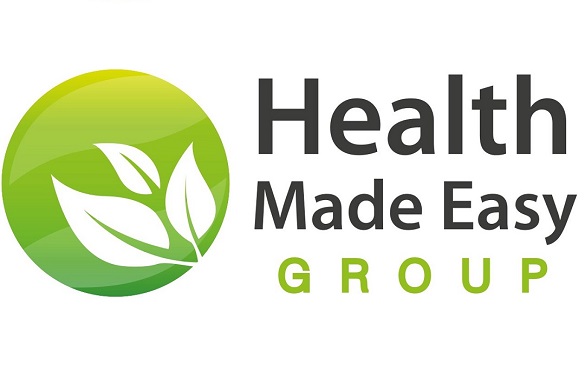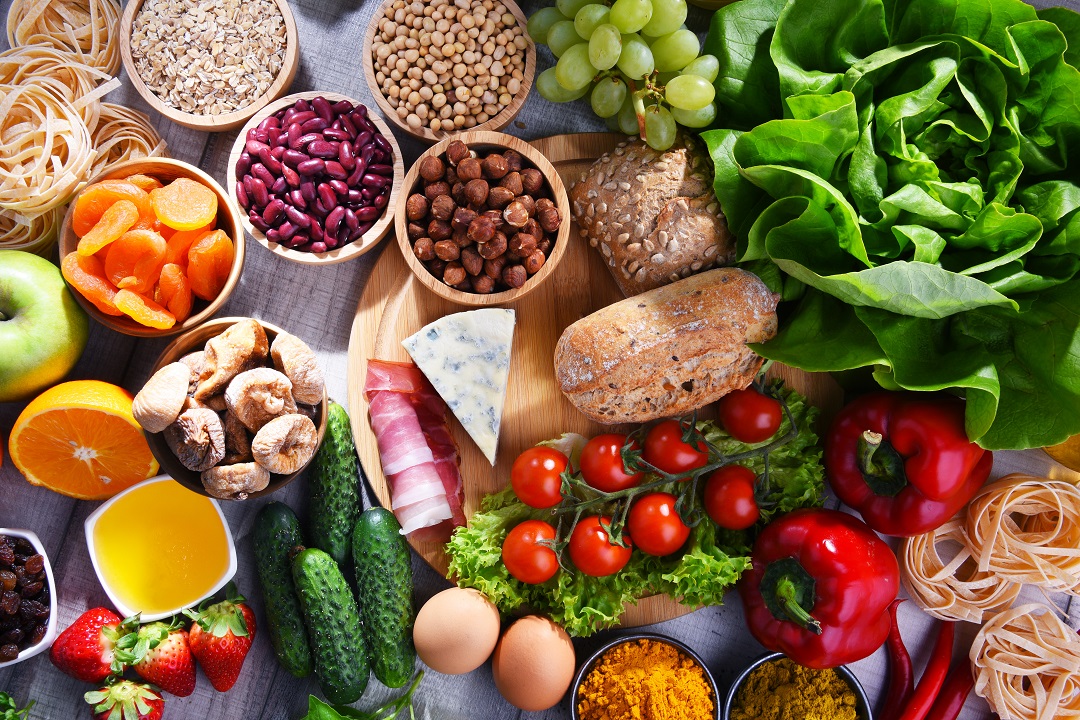
Salt of the Earth’s award-winning roll-on deodorant is now available in a new and improved formula.
The collection is designed to meet the needs of both men and women and new packs have been created by the British industrial design firm Rodd Design.
The brand new design results from consumer feedback and is a more sleek, ergonomic product that is more user-friendly for the consumer. This comes alongside a formula update with improved fragrance performance, quicker drying time and enhanced moisture levels.
This is the first time a major brand has launched a fully refillable roll-on deodorant. It is hoped that it will help consumers significantly reduce their plastic consumption and save money; using a refillable roll-on will use 65 per cent less plastic compared to a disposable roll-on. Salt of the Earth already offer refillable spray deodorants and stick deodorants.
Benefits of the new design:
The new roll-on deodorant is also now available in two new fragrances – Sweet Strawberry and Neroli & Orange Blossom.

Health Made Easy has issued a rebuttal to recent stories surrounding its future.
In a statement released to Health Food Business, which followed speculation about its future, the group, which owns both Tree of Life and The Health Store, as well as Higher Nature and Peppersmith, commented: “We are aware that stories are circulating about our group Health Made Easy Limited. Although we do not comment on unfounded, inaccurate and potentially damaging speculation, we take this opportunity to provide some helpful clarity on the current situation.
“The Group is the leading player in the sector with an enviable track record over many years. The Group embarked upon a project to find investors in the business to provide scope and capital for further development on the back of record performance in the year 2020/2021 of £103m sales revenue and £3m EBITDA. Brexit significantly impacted efforts to achieve this initiative.
“Recently the Group has undertaken a reorganisation of its business, which has included management, and is currently looking to realign its banking facilities to fit and support its revised strategy. The Group is facing up to the challenging circumstances of inflation impact and supply issues, as are many businesses at this time. We are working collaboratively alongside our longstanding suppliers and customers.”

The organic market continues to show growth, increasing by 6.5 per cent to the end of September.
The latest data from NielsenIQ was presented at the recent Soil Association Certification Trade Conference and shows that the organic market remains in buoyant good health with 6.5 per cent growth in the year to September 25. This is in marked contrast to non-organic, which saw sales stall over the 12 weeks. It was also revealed that half of households now buy organic.
Delegates at the conference heard that non-organic food sales have slowed significantly following their ‘lockdown high’ as restrictions have been lifted on the hospitality and food service sector but sales of organic are showing good resilience.
The trend for more sustainable and healthier organic foods, which rocketed during the Covid-19 pandemic, has persisted.
Online organic sales have continued their strong growth, found to be up 33 per cent, while supermarkets, which accounted for 13 per cent of total sales of organic two years ago before the pandemic, have seen their share of total organic sales rise to 22 per cent.
Soil Association Certification’s Business Development Director, Clare McDermott, commented: “Organic sales have shown phenomenal resilience after the unprecedented growth they saw in 2020 at 12.6 per cent. Despite a significant slowing of retail sales overall, the organic market has maintained its strong performance with growth at 6.5 per cent in the year to September.
Post lockdown, there has been the expected shift back to hospitality with non-organic food sales stalling as consumers look to eat out and stay out.”
The top reasons given by consumers for buying organic included to avoid pesticides, better for the environment, and perceived to be better quality. These factors have all increased in importance for shoppers, as has animal welfare, while the taste and health benefits associated with organic foods have remained the same.
With the increase in demand for organic, shoppers are now looking for multiple organic options – sales are no longer dominated by organic milk and baby food.
The three big opportunities for organic food and drink were identified as online retailers offering a wider assortment of products, increasing the frequency of purchases by offering different size packs and top-up options, and widening the
choice across categories to encourage higher basket spends.
Sustainability is high on people agendas and Covid-19 and the climate emergency has increased this. New findings from the latest Organic Shopper Research 2021 has revealed that 71 per cent of respondents have become more concerned about the environment since the pandemic. Customers are predominantly choosing organic for reasons associated with health and the environment, although animal welfare is also important.